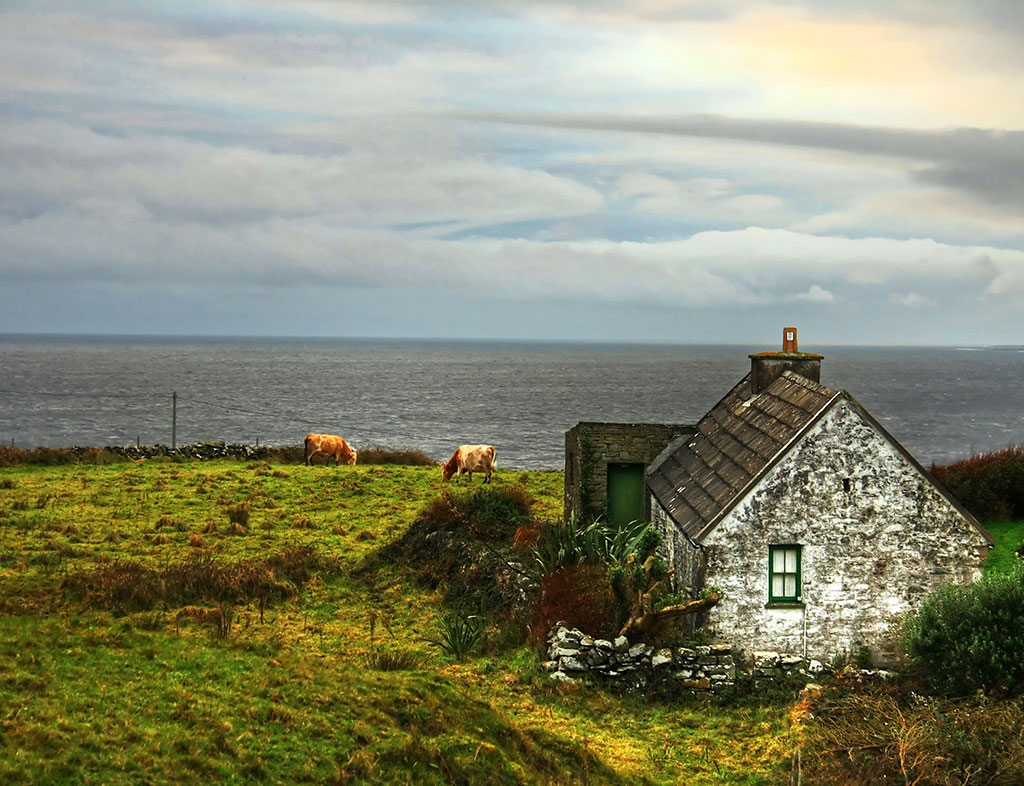Activity in Ireland’s property market is picking up. Buyers from the UK, including Irish migrants and those with Irish roots, have decided now is the time to take advantage of rock-bottom property prices before they start to rise again.
However, despite Ireland’s proximity to the UK and its historical links, there are some quirky differences between buying and owning property in the two countries. For starters, anyone contemplating a property purchase in the Emerald Isle might find it useful to know that it wasn’t long ago that solicitor’s fees for conveyancing there were typically charged at one percent of the purchase price. Thankfully – for both buyers and vendors – these days fees tend to be fixed, typically costing €750-€1,200.
Then there is the inescapable stamp duty: in Ireland this is levied at one percent of a property’s purchase price up to €1m, and two percent on anything over and above that. So for €1.25m property, €1m would be subject to one percent tax and €250,000 to two per cent.
Especially relevant for vendors, all Irish estate agents (often called ‘auctioneers’) must now have a licence from Ireland’s Property Services Regulatory Authority (PSRA) to trade legally. Those that have been operating for a certain number of years should be granted a licence without needing formal training, which new firms need to undergo.
Energy-conscious readers will be pleased that all property advertised for sale or rent in Ireland must now have a Building Energy Rating (BER) certificate, which assesses a property’s energy efficiency in terms of energy use for space heating, water heating, ventilation and lighting, calculated on the basis of standard occupancy. The ratings are A-G, with A being the most efficient.
Recycling is encouraged too. Did you know that rubbish collection is typically done by private firms in Ireland and not by the local council? So it’s a cost homeowners can choose not to have. Unsurprisingly, it’s common for residents in rural parts of the country to compost their household organic waste and take recyclable waste to centres, where you are charged per bag.
And on the subject of rural Ireland, it’s often not obvious where Irish communities away from towns start and end, with properties strung out along country roads. This feature of residential development has been shaped by history, specifically Ireland’s now defunct Land Commission. The Commission was set up in the late 1880s to help break up the huge estates, largely owned by the British, and re-distribute the land equally among local farmers, resulting in the patchwork of smallholdings you see today. Planning permission to build a new home is still relatively easy to get in rural areas, with plots typically needing to be a minimum of 0.5 acres.
To help you budget for home ownership, note that Ireland is rolling out a new type of council tax this year, called the Local Property Tax (LPT), the deadline for which to file a return is May 28, 2013. The tax is levied at 0.18 percent of a property’s value, so a €200,000 place will cost €360 a year. LPT is levied on all properties, whether they are occupied or not. Until 2012, there hadn’t been any type of rates levied on Irish property since the late 1970s, when council tax was abolished. In January 2012, a flat rate household charge of €100 was introduced as an interim tax before the introduction of LPT.
Finally, it’s so close by, property buyers from the UK often overlook the fact that Ireland is in the eurozone – until the day they need to send money there. But failing to plan the exchange and transfer of funds to an Irish bank can incur unnecessary costs – namely, by asking your bank to make a currency transfer for you. Instead, using a specialist currency firm, such as Smart Currency Exchange, will mean you receive a far more competitive exchange rate, a better, more personal service and you have the option of forward-buying euros to help you budget.
Richard Way is Editor of The Overseas Guides Company. Find specific information on Ireland here.





